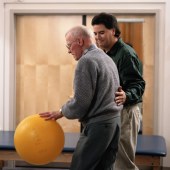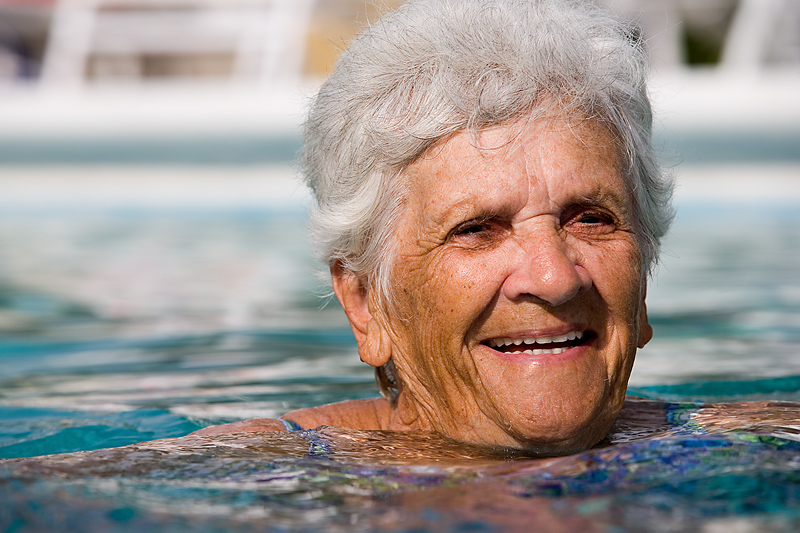
WEDNESDAY, March 30 (HealthDay News) — A combination of diet and exercise can help obese seniors lose weight and stay fit much better than either diet or exercise alone, researchers reported Wednesday.
The finding may sound obvious, but the lead author of the new study said it had not been proven previously in people over 65.
In fact, some physicians worry about recommending dietary changes and exercise for older people for fear that weight loss may cause them to lose muscle and bone mass and increase their frailty, said geriatrics specialist Dr. Dennis T. Villareal, whose study is published in the March 31 issue of the New England Journal of Medicine.
But the findings suggest that older people, with approval from a physician, should combine diet and weight management “to improve their physical function and their quality of life and delay the need for institutionalization,” Villareal said.
At least 20 percent of the elderly are obese — a step above being simply overweight — and that number will grow as more baby boomers age, Villareal added. He is currently chief of geriatrics at New Mexico VA Medical Center, but he started the research when he was at Washington University School of Medicine in St. Louis.
In a year-long trial, Villareal and his colleagues tracked the health of 93 obese people who were 65 or older. The participants were assigned to one of four groups: Some took part in a 90-minute exercise routine (including stretching, aerobic activity and training on weight machines) three times a week. Others reduced their diets by 500 to 700 calories a day, roughly equal to a couple of servings of low-sugar cereal with non-fat milk. A third group dieted and exercised, while a fourth group, acting as a control, did none of the programs.
Those who dieted and exercised did the best, losing 9 percent of their weight while retaining lean body mass, increasing oxygen consumption and improving their strength and balance. The diet-alone group lost 10 percent of their weight but did not achieve similar physical improvements.
And the exercise group, along with the control group, lost no weight.
It’s not surprising that those who only exercised didn’t shed pounds, Villareal said. “There’s a myth that exercise is effective in inducing weight loss,” he said, adding that exercise must be intense to cause people to shed pounds.
Overall, the researchers reported in their study, diet or exercise alone did improve physical function, by about 12 percent and 15 percent, respectively. But a combination of diet and exercise improved overall physical performance by 21 percent.
That’s important because “obesity exacerbates the age-related decline in physical function, which causes frailty, impairs quality of life, and results in increases in nursing home admissions,” they noted in the study.
The findings make sense, said Alice H. Lichtenstein, director of the Cardiovascular Nutrition Laboratory at Tuft University’s Jean Mayer USDA Human Nutrition Research Center on Aging. “It’s impressive that they were able to get the people to adhere to a diet and to engage in physical activity,” she added.
More information
For more about obesity, try the U.S. National Library of Medicine.

